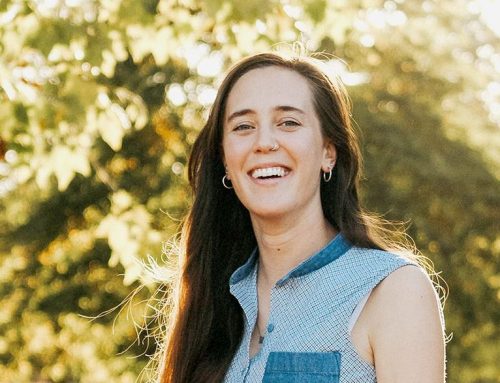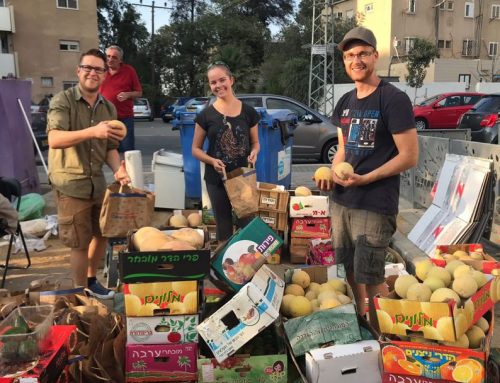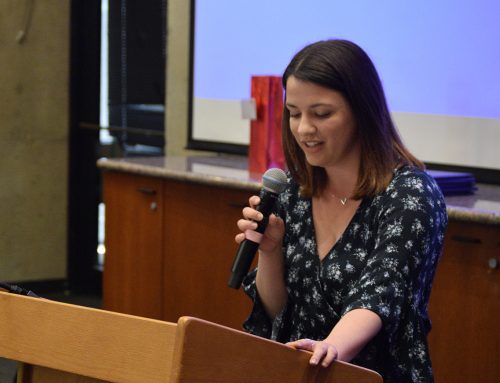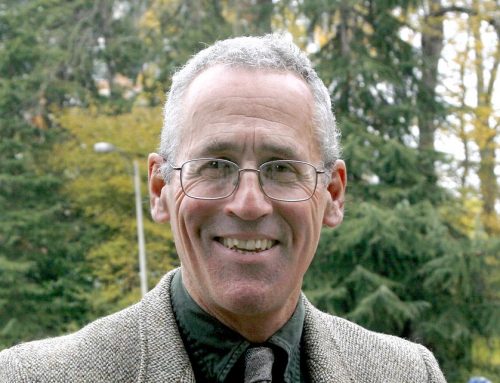![]()
Sarah Zaides is a Jewish Studies Graduate Fellow for 2012-2013. She spent the summer studying Hebrew in ulpan at the Hebrew University in Jerusalem. This is the first of a series of travel blogs reflecting on her experiences abroad.
My number one piece of advice for anyone spending any time abroad is to join a gym. It is easy to become lost in the mob of tourism, to overpay for Judaica, inevitably made in China, while lost in the Old City. If you want an easy and relatively inexpensive way to gain some insight into the daily routine of middle to upper-class Israelis, pay for a day or even a week membership to a gym.
I reaffirmed this mantra this summer, when I found myself in Jerusalem. One of the perks of being a usually underpaid and overworked graduate student is the unparalleled opportunity not just to travel abroad, but to live abroad. The previous summer, I lived in Amman, Jordan, while on a US Department of State Critical Language Fellowship for Arabic. A glutton for punishment, at least vis-à-vis intensive language programs, this year I opted to spend my summer in ulpan
Every day, I would make the ten-minute walk and join the mostly secular Israelis at the Lerner pool. While swimming laps was my favorite mental and physical reprieve from ulpan and the Jerusalem summer, the center also boasts a state-of-the-art tennis complex, weight room, and several dance and yoga studios. Interestingly, the pool was where I heard the most Arabic during my time in Israel (aside from my jaunt to the West Bank and Damascus Gate). Occasionally I would see an Arab woman in a “Burkh-ini” or a Jewish woman in a modesty swim suit that looked, quite honestly, identical to a Burkh-ini (seriously–has no one else noticed that Orthodox Jewish women dress almost identically, minus the whole “skirts as tznius” thing, to religious Muslim women?).
Mostly, however, I shared lanes with a mix of visiting scholars, graduate students, and typical middle to upper-class, educated Israelis with some expendable income. Additionally, this particular gym is open on Shabbat, and offered a secular safe haven from the sometimes imposing nature of the Day of Rest in Jerusalem. After my first swim, the gentleman I shared a lane with introduced himself, and after a conversation in Spanish (our mutual, most comfortable language), it turned out that he was a prominent member of the Political Science faculty. Later, in a familiar Jewish fashion, he offered to make a shidduch (match) for me with one of his graduate students. I politely declined.
I learned a lot from my afternoon swims. First of all, Israelis couldn’t care less if they’re swimming in the middle of a lane. They don’t seem to mind if they cause massive traffic jams in the fast lane by floating peacefully on their backs. Also, they love to line up along the wall of the pool and gossip just as you’re about to execute your flip turn. In the United States, this kind of poor pool etiquette would drive me nuts. But in Israel, it just reminded me to slow down and recognize that these particular Israelis were not in the pool to maximize calorie burn. In fact, just as in Amman, this point demonstrates to me that these gyms are truly places of leisure and relaxation for Israelis.
To prove this point further, what gym in the United States has ice cream sundaes on the menu of their in-house (and might I add, quite excellent, with a 15% discount to members) restaurant? And to boot, this is not just any ice cream, but luscious, unbeatable glida, that Israelis enjoy while working on their suntan poolside after their workout. Many entertaining conversations were had and overheard by myself and group of graduate student friends while sunbathing and making Hebrew flashcards.
Unfortunately, there is a dark side to this otherwise delightful place. Everywhere in the gym, by the pool, in the locker room, in the weight room, you see a very real ethnic division of labor. Arabs make up the entire custodial staff, while Jewish Israelis (secular, but also some religious) staff the offices, membership, and front desks. The Arabic (Palestinian Ammiya) I heard among the women in Hijab almost constantly mopping up in the shower area served as a constant reminder of the challenges still facing the Israeli state.






